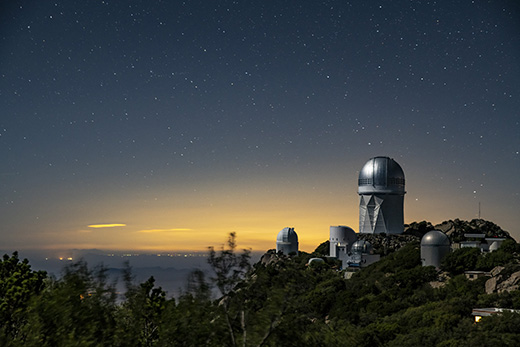Cosmology (Particle Astrophysics)

Have you ever wondered about the physical properties of the universe on the largest scale? K-State cosmologists study the structure and nature of spacetime, space, radiation, ordinary and dark matter, and dark energy on a cosmic scale using data from the world's most advanced telescopes and satellites and scientific theories from every field of physical science, including particle physics. Sometimes it is even possible to use observed structures in the Universe as scientific instruments; for example, an upper limit on the neutrino mass can be derived from observations of the cosmic microwave background radiation .
Bharat Ratra researches the structure and evolution of the universe. Two of his current principal interests are developing models for the large-scale matter and radiation distributions in the universe and testing these models by comparing predictions to observational data. These comparisons allow for tests of the inflation model of the very early universe; measurements of the geometry of space, the cosmological expansion rate (the Hubble constant), and the densities of dark energy, and dark and ordinary matter; and, whether or not the observed dark energy density evolves in time.
Lado Samushia uses data from large galaxy surveys to measure properties of the Universe with very high precision. He is involved with the Euclid satellite mission the Dark Energy Spectroscopic Instrument experiment, and the WFIRST satellite mission.
Cosmology Faculty
|
(785) 532-6265 |
|

